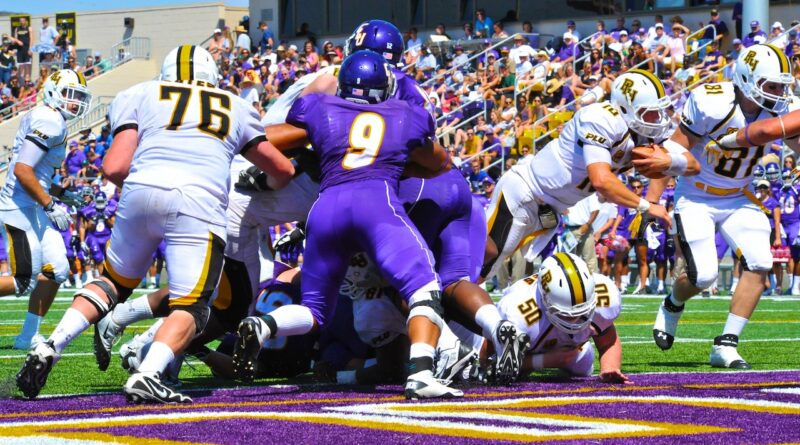Motivations of High Achievers
I’ve been reading about some marvelous people lately. Formula One race car champions and Hall of Fame Football coaches are dominating the list right now, but that’s just a phase I’m going through. Nevertheless, it’s very impressive to recount the journeys these driven, determined, courageous people have taken. They decided to go wherever fortune led them to increase their mastery and their chances of reaching the top rung of their chosen fields.
I was too stubborn to think I needed to do that. I thought living right where I was would be enough to propel me towards my goals; it was more up to my attitude than my geography. There’s some truth to that, but there’s also truth in going where opportunities are likely to present themselves, or to going where the masters of your art reside.
I also didn’t want to give up the wonderful place where I lived, where winter was mild and snow skiing was near, where summer’s were ideal and recreation was everywhere in every form – hiking, boating, fishing, water skiing, golf; mountains, lakes, open ocean and inland waters, desert, rain forests, wine country, farm lands, forests. Literally, everything was here. Why go somewhere else and miss all of this?
I was not willing to sacrifice nearly everything else to satisfy my urge to compete, to excel, to reach the top. The extraordinary thing is these people seem to have good families and still single-mindedly pursue their careers. People like football coaches Don James, Nick Saban, Keith Gilbertson and Jim Lambright. Racer drivers like Graham and Damon Hill, Niki Lauda, Alain Prost, Al Unser, Sterling Moss, Mario Andretti. I’m not sure how that’s possible, really. Those other things are too important for me to risk not having. I don’t want to conjecture how or why these people seem to have succeeded at that. I do marvel at how their wives and children publicly admire them, as well as so many people who were around them professionally.
These are not casual careers. They take weeks and months away from home, and include ridiculous work hours as a matter of routine. There must be something about how they do their business, a consistency in how they conduct themselves professionally and personally. Do they have a pursuit of excellence and an unyielding code of conduct that transcends the circumstances of everyday living? I think they also must have wives and family that accept the sacrifices they are making for these people to pursue these wild dreams. Is the goal worth the effort, the sacrifice?
In the case of big-time American college football, I would think it might be just as rewarding to be a college coach anywhere. If your motivations are truly to teach the greatness of the game and mold young men through it, why wouldn’t any opportunity to do that be enough? Aye, well that’s the rub isn’t it? Can you follow one of the greatest college coaches ever, Frosty Westering, who preached to “Make the big time where you are”? Frosty coached at the collegiate NAIA and NCAA Division III levels. Because he practiced his own advice, is he the bigger man as a result? Is some modicum of moderation a bigger indication of adherence to the stated goals of teaching and mentoring?
Or, is it the additional pressure of higher level competition that truly shapes a stronger person by overcoming a perception of greater adversity against those teachings? My first thought is pressure is self-imposed. Others (media, fans, loved ones) may try to assert pressure, but it is ultimately the competitor who picks it up and choses to carry it. On the other hand, it takes a very detached and confident individual to not be affected by the thoughts of others. The independence mentalities of ‘I don’t care what others think’ and the ‘motivation from criticism and disrespect’ get seriously challenged.
I think it comes down to ego. And the same can be said of formula one racing. They simply must know if they can hold their own with those who are supposedly ‘the best.’ They are driven ‘to know.’ Even if they do succeed, it’s a fleeting success. But it cannot repeat itself very often; how many times does one win a championship, or beat all comers?

Every season is its own challenge and has its own life. Every season is a microcosm of living. I get that’s why we play these games over and over year after year; it’s the microcosm we crave, the encapsulation and the concentration of drama we live for. What do we do when we can no longer do that, when we are no longer either motivated enough or skilled enough to keep going? Where do we go then?
Many a high achiever has had the problem of transition, of either withdrawing from the limelight or the excitement and finding some fulfillment in something not so dangerous, not so glamorous, not so filled with attention and adulation. Ego. Get over yourself. Take the lessons sports were built to teach you and use them. Humility. Being your best self. Discipline. Commitment. Courage. Action. That’s what gets all of us through. Sports teach that through games but in real terms. Sports are games where the bumps, the injuries, the adversities are real. There is no Metaverse to save you from the consequences; it’s the real deal with no safety net. And that’s what makes it the true challenge.




